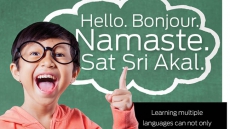Social media’s ironic societal impact in increasing loneliness and causing communal disconnections can not be overlooked
In the age of digital connections, social media is often availed to be at the center of fostering engagement. While its networking capabilities cannot be matched, social media’s ironic societal impact in increasing loneliness and causing communal disconnections can also not be overlooked. One is not usually aware of such negative effects, increasing the prevalence of unhealthy habits that contribute to an array of damaging results.
A quick, single notification popping up your device can often pave the path to a distracted, disengaged conversation. Moreover, when it comes to real-life social situations, social media is often used to avoid awkwardness. These occurrences lead to the onset of social anxiety and habitual uneasiness if the phone is not constantly checked. Although those around you may not be nagging you about your over-usage of the phone in social settings, they may still be impacted by your action. In fact, you are also impacted! Researchers at the University of British Columbia have found that even seemingly minor distractions from a phone that vibrates, or rings, may result in decreased enjoyment of the present moment by an individual.

That said, feelings of loneliness are not solely tied to isolation from others but can arise from the constant attack on one’s self esteem because of social media. FOMO, the fear of missing out, promotes the compulsiveness of checking for updates and continually comparing one’s quality of life with others. Especially for those with lower self-esteem, others’ social media updates can increase a sense of dissatisfaction of the self; one’s flaws, shortcomings and setbacks simply become more apparent. The comparison factor often paints a flowery picture of the world, making one’s own life appear less successful, adventurous and content.
This is where the pitfall of validation comes in. Humans need connection and belonging to truly thrive as individuals and as a society. Since a considerable amount of human interaction is now at the mercy of social media, people have begun to measure connection and belonging through ‘likes’, ‘comments’, and ‘shares’. Not attaining the benchmark of these validation signs can impact self-perception and increase sadness.
Recently, a group conducting studies surrounding this subject from the University of Pittsburgh and West Virginia University found interesting insights. The risk of depression rose by a whopping 20 per cent for an individual for every 10 per cent rise in negative social media interactions. However, positive interactions did not have any notable effect on the person. This is so because of the negativity bias; we are much more likely to remember and become affected by negative occurrences as compared to positive ones.
Given that loneliness leads to problems that are worse than smoking and obesity, it is undoubtedly important that steps be taken to combat the increasing dominance of social media’s arguably unanticipated side effects. The usage of social media has truly only expedited in the last two decades, making it a relatively new phenomenon.
Therefore, to reap its benefits, try taking the following precautionary measures when it comes to your online life:

Set Limits:
Establish how many times you will check your phone per day and for how long. For applications that are not as important, turn off notifications so that you decide when to go in and check for updates, rather than the app deciding for you.
Create phone-free zones:
When eating at the table with family and friends, ensure your phone is on silent. Other times you may want to prohibit phone use is during parties, right before heading to bed or when another person is speaking directly with you.
Question your purpose:
Before opening an application on your phone, ask yourself what the purpose of your engagement is. This will decrease mindless browsing and waste less time.
As an experiment, monitor the amount of time you spend on social media applications. You may even be able to download an app to track your usage. Then, evaluate the way social media makes you feel and determine whether it is time for a change. Remember that social media was created to become a tool, for which the user remains in control. By maintaining a healthy balance, social media can become an accelerating force for you, accenting a meaningful social life!




